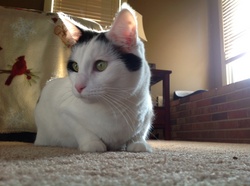Monitoring a pet's stools can help you be a better caregiver to any species

Lorrie Shaw | Contributor
Being mindful of non-verbal cues is crucial in sharing life with pets, as most of us have learned, and implementing one habit can tell us volumes about them and their health: looking at their stools and waste.
During a meet and greet with a prospective client, I note that checking the contents of the litter box, the stool of a dog or examining the droppings on the bottom of an exotic bird enclosure is crucial to what I do. It helps me gauge if there are problems with a pet's health and to what degree, as well as helping me start an all-important timeline.
I look for changes in consistency and color and if there are things that shouldn't be in there, like blood or visible parasites.
It's helpful to relay this info in my daily reports to clients — and if need be, the pet's veterinarian — and, additionally, if there are issues that arise after being released from my care, the family can more confidently start a dialogue with the family's veterinary clinician should changes in health arise.
Noting the elimination habits of exotic birds is especially helpful. Even if a client prefers that I not change the liners of a bird's cage, (which is often not the case) my peering around on the bottom of the enclosure to check to see what's been going on is for me, necessary. Often, you can detect if pressure sores are present, or if other issues are rearing their head by seeing where waste is piling up.
So, the next time that you grumble about having to pick up after your pooch in the cold, scoop that litter box or clean your exotic pet or bird's enclosure, remember that you'll be gaining valuable information by doing so and by paying closer attention.
Lorrie Shaw leads the pets section for AnnArbor.com. Connect with her on Google +, on Twitter @psa2 or e-mail her directly.


Comments
EyeHeartA2
Tue, Jan 8, 2013 : 1:38 p.m.
Sometimes we need go no further than our living room to monitor this situation. Joy.
LA
Wed, Jan 2, 2013 : 3:12 p.m.
Yup. Very valuable! Like having a baby. It's second nature to my husband and I to look and then offer a comment when needed to the other: "A little soft today, what did he eat last night?" or, "A two-stepper, everything normal!" (dog often takes a step or two and does part two of number two!! Ok. TMI). Watching our daughters dog over winter break, "OMG can you believe the size of that? I think they need to change her diet. Too much roughage!" Ha! And speaking with other pet-parents, I know we're not alone in our 'poop alerts'!